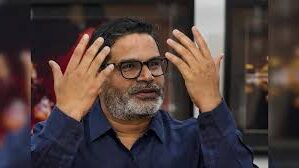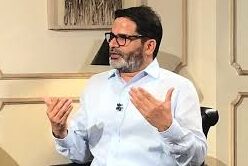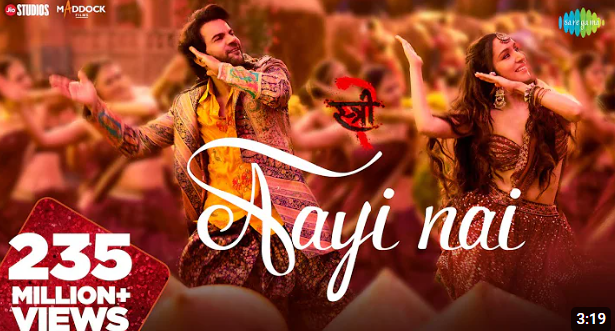
Political strategist Prashant Kishor has opined that the opposition would have been in a stronger position for the upcoming 2024 Lok Sabha Elections if it had seized several opportunities when Prime Minister Narendra Modi’s BJP was on the defensive. According to Kishor, the opposition missed critical moments to regroup and mount an effective challenge against the ruling party.
Missed Opportunities:
1.Post-2015 and 2016 Elections:
– Delhi Assembly Elections (January 2015): The Aam Aadmi Party’s significant victory.
– Bihar Elections (November 2015): The BJP’s loss.
– Assam, Tamil Nadu, and West Bengal Elections (2016): BJP only won Assam, and that too in an alliance.
– This period was crucial as Modi’s popularity was still rising, and a coordinated opposition could have gained momentum.
2. Post-Demonetization Period (2016-2017):
– Economic and Rural Distress: Following the demonetization of ₹500 and ₹1,000 notes.
– Protests in Gujarat and Maharashtra: Reflecting public discontent.
– Gujarat Assembly Elections (November 2017): Congress performed well despite losing; BJP won narrowly.
– State Elections Losses (2018): BJP lost in Rajasthan, Chhattisgarh, and Madhya Pradesh.
– Kishor highlighted that this 15-17 month period was another opportunity when the BJP was vulnerable.
3. Post-Second COVID-19 Wave (June 2021):
– Dip in Modi’s Approval Ratings: Following the second wave.
– BJP’s Loss in West Bengal Elections: Highlighting a potential shift in public sentiment.
– This period could have been leveraged by the opposition to strengthen their position.
4. Formation of the INDIA Bloc (June 2023):
– United Front Against BJP: Initial momentum suggested a strong challenge.
– Lack of Follow-Through: The opposition lost crucial 4-5 months without significant action, while the BJP intensified its campaign.
– Ram Mandir Event: Opposition’s inactivity during this period further hindered their prospects.
– Delayed Response: By February, the opposition’s efforts were too late to counter the BJP’s head start.
Current Context:
– NDA’s Ambitious Target: The BJP-led NDA is seeking a record third term with a target of winning 400 seats.
– Remaining Phases of Voting: As of now, voting for 428 of the 543 seats is complete, with the final phases on May 25 and June 1. Vote counting is set for June 4.
– Opposition’s Challenge: The opposition, under the INDIA bloc led by Congress, faces a formidable task in challenging the well-prepared NDA.
Kishor’s analysis underscores the importance of timely and strategic action by the opposition, which, if missed, can significantly affect their chances in critical elections. Prashant Kishor
Political strategist Prashant Kishor has expressed that the opposition could have been in a stronger position for the upcoming Lok Sabha Elections in 2024 if it had capitalized on various opportunities when Prime Minister Narendra Modi’s Bharatiya Janata Party (BJP) faced challenges. Kishor points out that despite moments when the BJP was on the defensive, the opposition failed to effectively rally and present a united front. This lack of strategic and timely responses has, according to Kishor, hindered the opposition’s ability to mount a significant challenge against the ruling party.
In an interview with NDTV, political strategist Prashant Kishor highlighted several missed opportunities for the Congress-led opposition that could have bolstered their position ahead of the 2024 Lok Sabha Elections. Kishor pointed out that in January 2015, the Aam Aadmi Party (AAP) won the Delhi assembly elections, and later that year in November, the BJP lost the Bihar elections. Furthermore, in the period leading up to May 2016, assembly elections were held in Assam, Tamil Nadu, and West Bengal, with the BJP securing victory only in Assam through an alliance.
Kishor emphasized that these 15-18 months were a critical window when the opposition could have capitalized on the situation, as Prime Minister Narendra Modi’s popularity was still on the rise following his 2014 victory. However, the opposition’s failure to effectively regroup and strategize during this period allowed the BJP to consolidate its position unchallenged.
In his analysis, political strategist Prashant Kishor pointed out another critical period when the opposition had the chance to challenge the BJP but failed to capitalize on it. He referred to the aftermath of the 2016 demonetization of ₹500 and ₹1,000 banknotes by the Modi-led government. Kishor noted that this policy created significant economic and rural distress, leading to turbulence across the country.
He mentioned that despite the BJP winning the Uttar Pradesh assembly elections in 2017, there were notable protests by the Patel community ahead of the Gujarat elections, as well as protests in Maharashtra. According to Kishor, this period was challenging for the BJP and Prime Minister Modi. Prashant Kishor
In the November 2017 Gujarat polls, although the Congress did not win, it performed commendably, with the BJP securing victory by a narrow margin of about 15 seats. Following this, in the subsequent months, the BJP lost the assembly elections in Rajasthan, Chhattisgarh, and Madhya Pradesh.
Kishor emphasized that this span from mid-2017 to the end of 2018, which lasted around 15-17 months, was another significant opportunity when the BJP was vulnerable. However, the opposition failed to effectively leverage this period to mount a substantial challenge against the ruling party.
Prashant Kishor highlighted yet another missed opportunity for the opposition following the second wave of COVID-19 in June 2021, a period marked by a dip in Prime Minister Modi’s approval ratings. This time coincided with the BJP’s loss in the West Bengal state elections. Kishor pointed out that this period presented a significant opening for the opposition to gain traction. Prashant Kishor
Kishor also noted that the formation of the INDIA bloc in June 2023 represented a critical moment when multiple opposition parties came together, generating a sense of a credible challenge to the BJP. There was widespread anticipation that this united front could limit the BJP to around 220-240 seats in the 2024 elections. However, according to Kishor, the momentum stalled, and for months, there was no significant progress or cohesive strategy developed by the opposition.
Kishor’s observations underscore the repeated instances where the opposition had potential opportunities to counter the BJP’s dominance but failed to capitalize on these moments effectively.
Prashant Kishor has predicted that the Prime Minister Narendra Modi-led BJP will return to power in the 2024 Lok Sabha Elections. He noted that the Congress had predicted victories in the five assembly elections held in November-December 2023, which did not materialize. Prashant Kishor
The opposition, particularly the INDIA bloc, believed that they would start the 2024 elections from a position of strength. However, this miscalculation caused them to lose a crucial 4-5 months while the BJP had already begun its campaign under Prime Minister Modi.
Kishor mentioned that for two months following the Ram Mandir event, the opposition appeared to have almost given up. By the time they reactivated their efforts in February, it was too late.
As of now, voting for 428 of the 543 seats in the Lok Sabha elections has been completed, with 49 seats contested in phase 5 on May 20. The remaining two phases of voting are scheduled for May 25 and June 1. The counting of votes for all seven phases will take place on June 4. Prashant Kishor
The BJP-led National Democratic Alliance (NDA), under the leadership of Prime Minister Narendra Modi, is aiming for a record third term with an ambitious target of winning 400 seats in the 2024 Lok Sabha Elections. This election presents a significant contest, with the ruling alliance being challenged by a coalition of opposition parties led by the Congress, operating under the banner of the INDIA bloc.






